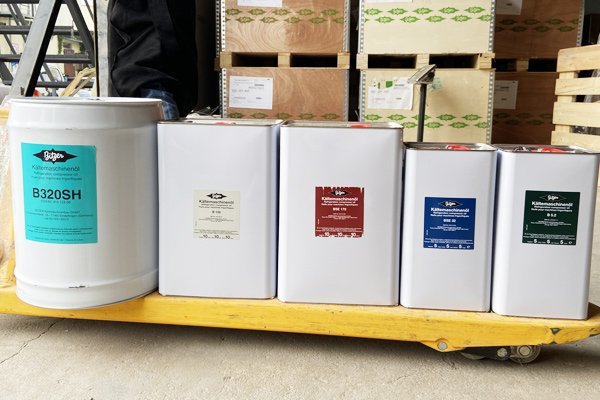What are the factors that affect the oil return of the system?

1. Diameter of gas and liquid pipes in the refrigeration system
If the diameter of the connecting pipe in the system is too large, the flow rate of the refrigerant in the pipe will become smaller under the same load and refrigerant amount, thereby reducing the oil-carrying capacity of the refrigerant and making it difficult to return oil.
2. In the heating state, the influence of ambient temperature on the oil return
The liquid in the gas-liquid separator is a mixture of refrigerant and lubricating oil. When the temperature is high, the two dissolve each other, and the lubricating oil and liquid refrigerant enter the compressor from the oil return hole. When the temperature drops below a certain critical value, the lubricating oil and refrigerant will be stratified, The upper layer is lubricating oil, and the lower layer is refrigerant, so there is only liquid refrigerant returning to the compressor from the oil return hole. Therefore, the compressor is short of oil; in addition, the liquid return line of the parallel compressor unit is relatively long. If the outside temperature is low, the temperature of the liquid return line will be relatively low, so there may be more accumulation in the liquid return line. Therefore, in the parallel compressor unit, the gas-liquid separator must be thermal insulation treatment.
3. The influence of refrigerant charge in the system on oil return
If the charging amount of refrigerant in the system is too large, it will cause the lubricating oil in the system to be diluted, and indirectly cause the amount of lubricating oil distributed in the system to be too large, which directly affects the oil return of the system.
4. The influence of installation on the oil return of the refrigeration system
At the beginning of the design, the length of the connecting pipe should be reduced as much as possible, and elbows and hard elbows should be avoided as much as possible, so as to reduce the oil return resistance. It is also necessary to minimize the places where oil may be stored.




